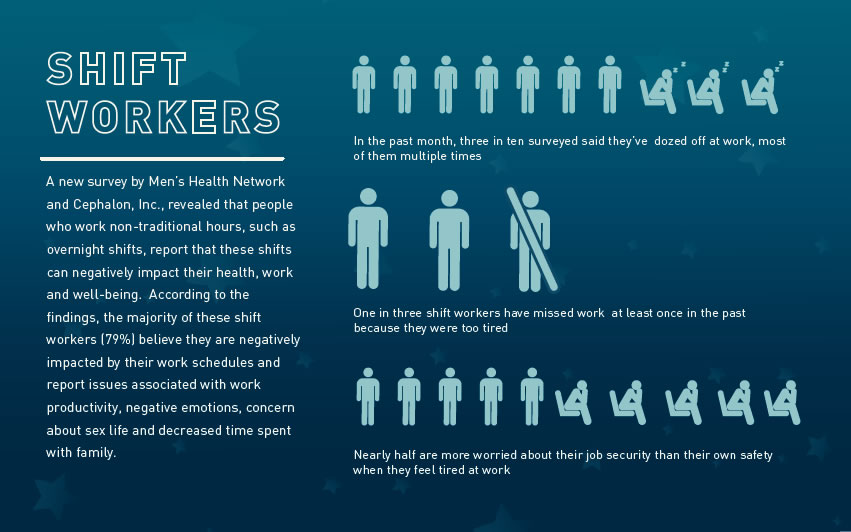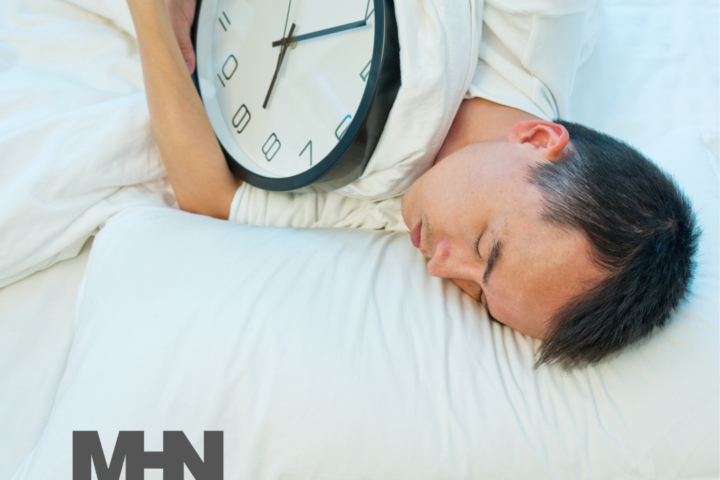New survey results released by Men’s Health Network and Cephalon, Inc. found that the majority of shift workers (79%) believe that they are negatively impacted by their shift work and report issues associated with work productivity, negative emotions, concern about sex life and decreased time spent with family. Nevertheless, of the 52% of shift workers who want a change in job or hours, most don’t think it will be possible in the near future and 44% feel that they will have the same job until they retire.
(click on image to enlarge)
Until recently, the health and family issues of shift workers have been largely overlooked, but recent incidents such as air traffic controllers falling asleep on the clock have helped to highlight the impact of working night shifts and sleepiness on the job. At least 15 million Americans perform some type of shift work, including nurses, firefighters, factory workers, emergency medical services staff and IT professionals.
Survey results also suggested an impact of shift work on people’s work productivity, with one in three shift workers reporting having missed work altogether at least once in the past year because they were too tired. And three in ten surveyed (29%) said that they have dozed off at work in the past month, most of them multiple times, with another 37% saying they’ve come close. Still, more people surveyed are worried about job security than their own safety.
Jean Bonhomme, MD, MPH, spokesperson for Men’s Health Network and Cephalon had this to say, “While the physical and emotional toll that shift workers are reporting is certainly of great concern, to me the most alarming finding of the survey is that a great majority of shift worker respondents (72%) seem to think that being tired is ‘just a part of the job’ and do not consider speaking with their physician about their symptoms. What we know is that people who work non-traditional hours may be suffering from a real medical condition called shift work disorder. This can be diagnosed and the symptoms can be treated by a doctor, if only they mention issues caused by their work schedule during visits to their healthcare professional.”
It is estimated the up to 25% of night or rotating shift workers have shift work disorder, a medical condition that occurs when an individual’s internal sleep-wake clock is not in sync with their work schedule.
Click here to see key findings from the study. To learn more about shift work disorder visit www.thewakeupsquad.com





Comments are closed.